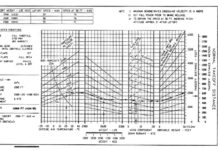Although it is still unclear what the causes were of the fatal accident that killed air show performer Bill Walker on March 26 at the Flagler Warbird Fly-In Show in Florida, eyewitnesses and colleagues of the pilot believe that he was probably physically incapacitated in some way in the moments immediately preceding the accident. More than one air show veteran has already observed that the circumstances of the accident are similar to those in the fatal accident of air show performer Ian Groom on Friday, April 30, 2004 at the Ft. Lauderdale Air and Sea Show in Florida. The exact cause of Groom’s accident was never determined, but the consensus at the time was that Groom had also been physically incapacitated in the moments just prior to his accident.
Some of the details of these two accidents are quite different. Walker was flying the Yak-52, a Soviet-era military training aircraft. Groom was flying a Sukhoi-31, a Russian-built sport aerobatic aircraft. Walker was flying a low-level looping maneuver; Groom was performing an upright flat spin. But both men were experienced air show pilots pulling significant Gs in an air show environment for the first time in a new season. In both cases, friend and colleagues observed that no control inputs were made during the last few seconds of the flight. Neither pilot made a radio call in the final stages of their flights. And, in both cases, it was quickly established that mechanical problems were not a contributing factor to the accident.
The final report on the causes of Ian Groom’s accident was vague and inconclusive. With luck, the investigation into Bill Walker’s recent accident will be more definitive. And there has not yet been any clear indication that G-induced loss of consciousness (G-LOC) was a factor in either Groom’s or Walker’s accident. But air show pilots should take note. It takes time to build G tolerance. By the end of last season, pilots were accustomed to and able to tolerate significant G loads. In most cases, that G tolerance is significantly lower in April or May than it was in September or October of last year…even if your ability to remember how you flew the maneuver is still very clear in your mind.








